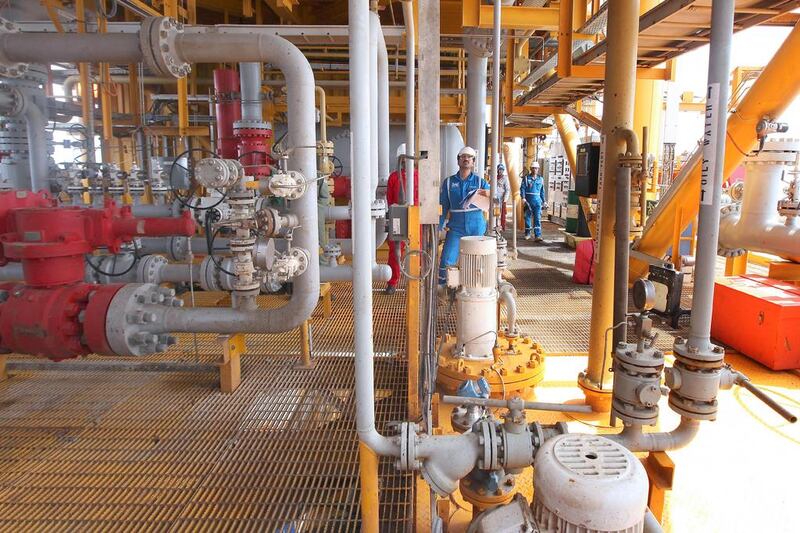Oman crude oil trading on the Dubai Mercantile Exchange in November slumped for the fifth month in succession to hit new five-year lows, as Opec members failed to reach agreement and apply the brakes on a market that has been in freefall since June.
The monthly average price of the DME for November, which is used by Oman and Dubai to set their official selling price (OSP) was $78.24 a barrel, down more than 10 per cent from an average of $86.96 for the December contract traded in October – and the lowest OSP since October 2010 when the average was $80.52 a barrel.
Prices continued to slide on Monday and the new front-month February DME Oman futures contract closed at $67.23, down more than $3 on the previous close and the lowest marker price since September 2009.
Prices this year peaked above $111 in June, but have now fallen by more than $40 in four months, or almost 40 per cent. The average 2014 price of Oman crude as of close of business on Friday was $100.32.
In the weeks running up to the meeting, there had been speculation that Opec might agree to reduce production, but that turned out not to be the case. Opec issued a communique after the meeting, saying that "in the interest of restoring market equilibrium", ministers had decided to maintain the 30 million barrels per day ceiling but were ready to respond to any developments that could have an adverse impact "on the maintenance of an orderly and balanced oil market".
Analysts said that GCC countries led by Saudi Arabia were looking at the longer-term game and willing to accept lower prices in the short-to-medium term and avoid an oil glut further out, whereas oil price hawks such as Iran and Venezuela are keen to maintain oil prices closer to the $100 level they have become accustomed to.
The non-Opec member Russia, also keen to re-establish higher prices, has provided vocal support for the price hawks. Russia, which produces 10.5 million bpd or 11 per cent of global oil, hinted it might also agree to cut output.
At the centre of the debate is the battle for market share in the face of the boom in US shale oil production, coupled with stagnating global economic and oil demand growth.
The opposing views within Opec were highlighted when the Saudi Arabian oil minister Ali Al Naimi said Opec had made “a great decision”, but Iran’s energy minister Bijan Zanganeh said the outcome of the meeting was “not what we wanted”.
The so-called "shock therapy" drop in crude prices is an attempt to force US shale oil producers – which have much higher operating costs than Middle East exporters – to scale back on production levels by forcing out the more marginal-cost producers, plus derail future investments.
But Iran’s Mr Zanganeh was quoted as saying; “high prices are a disadvantage to Opec’s market share … If you want to increase your share, you have to reduce prices, but you can’t do it through ‘shock therapy’ over the course of three months if you want to change everything.”
A strong dollar also continued to impact on oil prices as the Dollar Index rose to its highest level in more than four years on Friday. The differential between Brent and Oman held at the $1.5 to $2 range with Oman crude holding up relatively well in relation to other global benchmark crudes.
The North Sea Brent marker crude usually trades at a healthy premium to Oman, due to its superior properties.
Abu Dhabi’s Upper Zakum crude was trading at around $4 a barrel under Brent in November, as demand for physical crude remained sluggish. However, lower prices may tempt buyers back into the market, said analysts, including China building its stockpiles.
Paul Young is the head of energy products at DME
Follow The National's Business section on Twitter





